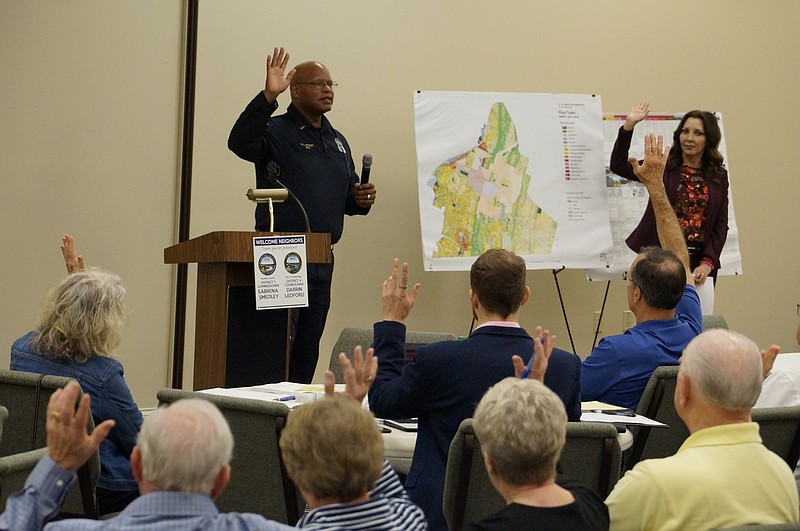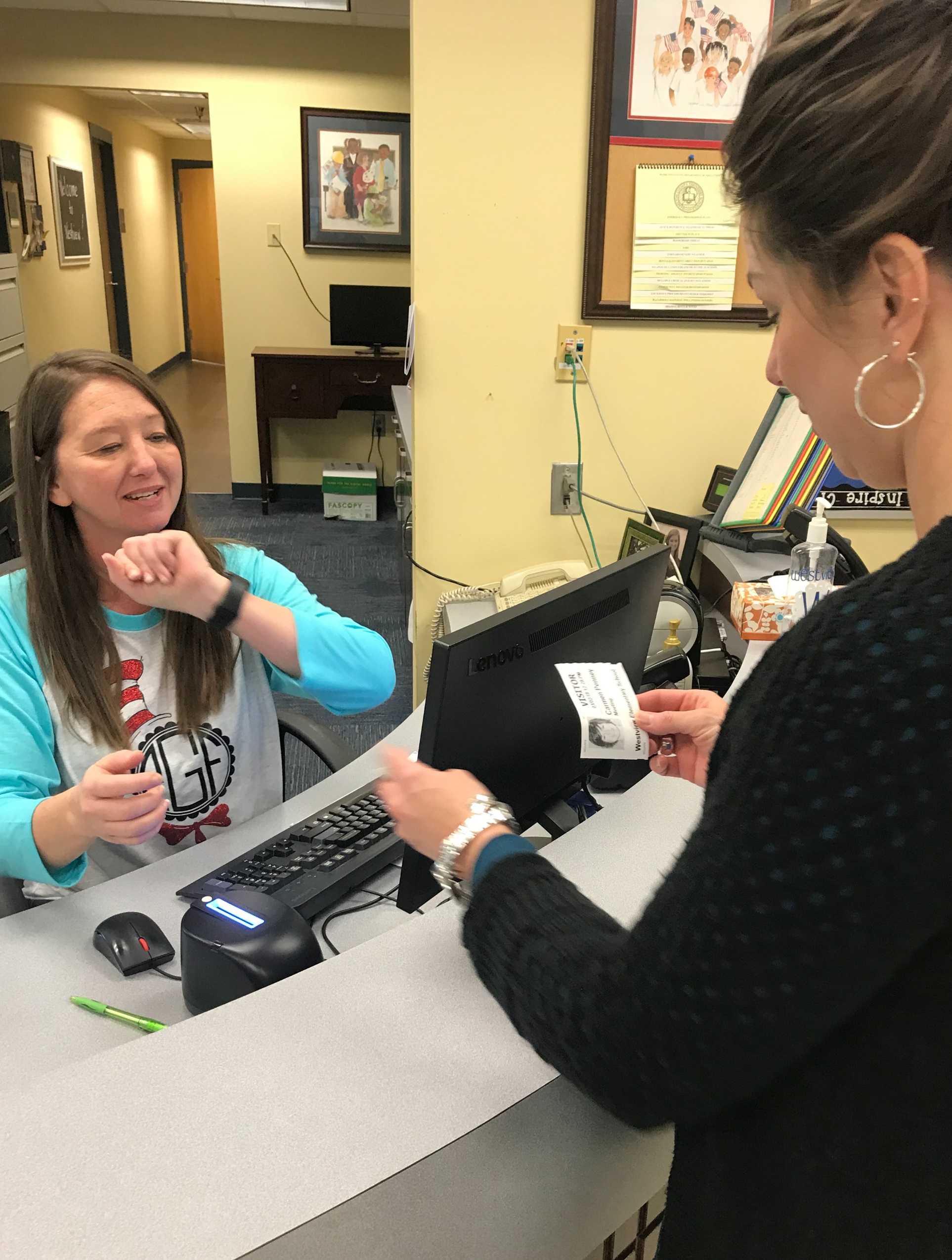As news of school shootings continues to dominate national headlines, local officials are taking steps to ensure that area schools, churches and businesses are safe.
Last month, soon after 17 students and teachers were gunned down in Parkland, Fla., Hamilton County Schools announced its plan to beef up security throughout the district by installing a new visitor monitoring system in each of its 79 schools by May 1.
Created by Raptor Technologies, the web-based check-in system runs each visitor's ID through registered sex offender databases. The system also scans against a customized database to prevent banned individuals or those with custody issues from gaining access.
Among the first schools to see the system implemented on their campuses were East Hamilton Middle/High School, Westview Elementary, East Side Elementary and Chattanooga School for the Arts and Sciences' Lower School.
"This adds another layer of security," said Eddie Gravitte, assistant principal at East Hamilton Middle/High. "It's providing a better way for us to keep track of comings and goings in the building."
If there is a concern with someone trying to enter the building, the system sends a notification to the school resource officer, administrators, the school district's central office and the Hamilton County Sheriff's Office. The individual would then be asked to wait for an administrator, and if there was valid business at the school, he or she would need to be escorted around the property by school personnel.
Though it's a step in the right direction, Gravitte clarified that the technology would have "absolutely zero effect" in the event of a shooting.
"If someone is bound and determined to cause harm in the school, they're going to find a way in," he said. "No visitor management system is going to prevent that. And that's the scariest thought."
Gravitte said one thing that could make the school safer in such a scenario would be increasing the number of SROs. Right now, the school has only one SRO, which Gravitte said is not enough to fully secure the building, which has multiple entrances and exits.
The Raptor system, which had been discussed locally before the Florida shooting, is only one of the ways the district is looking to improve safety, school officials say. The district has also been working to install new cameras on school campuses, as well as phones in every classroom.
The district is also planning to install electronic locks on the access doors at every school, requiring visitors to be viewed on camera before they are allowed inside. Officials hope to prioritize installation over the summer to have them in place by the 2018-2019 school year.
The Chattanooga Police Department has also been doing its part to enhance safety by sponsoring free crime prevention training.
The four-hour sessions, which wrapped up last month, were primarily designed for business owners and managers, though church leaders also attended to learn about preventive measures.
The sessions were conducted by the University of Tennessee's Law Enforcement Innovation Center, and each covered ways to deter criminal behavior through environmental design, looking at elements such as lighting, access control and glazing windows, among others.
"The thing that was nice and surprising for me was the gamut of things that I learned," said Bess Williams, director of Ministries to Children and Families at First Cumberland Presbyterian Church. The strategies will provide extra protection for the church's 75-child preschool program and 300-child summer day camp, she added. "We love our church family. It's just like my family at home; I would want to be prepared [to protect] them, as well."
Southern Adventist University is working to eliminate the lasting scars caused by tragedy by offering crisis intervention training for students, faculty and community members.
The three-day training program is part of the university's Crisis Counseling class, which is being offered as a requirement for select majors in the School of Education and Psychology for the first time this semester.
Associate Professor Liane de Souza, who teaches the class, describes the training as "psychological first aid." That could mean simply listening to victims after a crisis like a shooting or natural disaster, she explained, or helping them connect to their family, friends or resources in the community.
"It's extremely important, because that's where everything starts," said de Souza, who provided on-site crisis intervention at a memorial soon after shootings at two local military facilities in July 2015 took the lives of five servicemen. "If they do not do anything and they think 'oh, I'm fine,' [then] a couple of days later, sometimes months later, they'll realize they are having nightmares or they are still afraid. Then by the time they realize they need something, maybe they are already in a crisis themselves."
Among the roster of attendees are nurses from Erlanger, a professor from Lee University and leaders from area churches.
Though the course, which seats 30, is already nearly full, de Souza said she will likely offer it again in the fall if more people ask for it.
"The way the world is, we never know when the next crisis is going to [happen]," she said. "It's not even an 'if,' it's a 'when.' The more prepared we are, the better in terms of a response."
Email Myron Madden at mmadden@timesfreepress.com.

